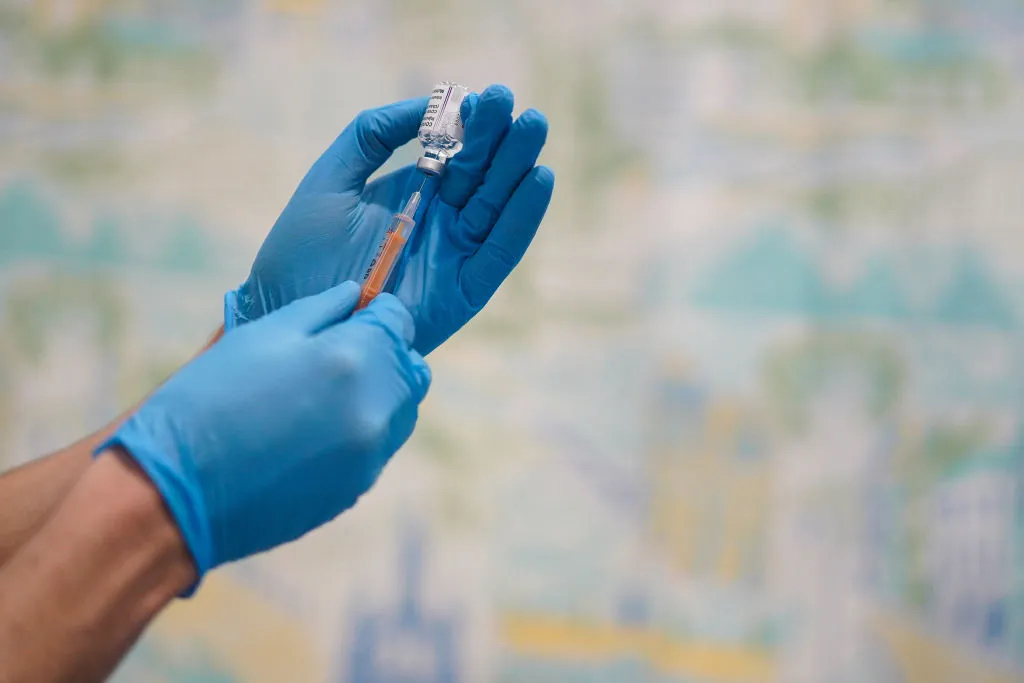A few weeks ago, I was present when my aunt, a Canadian citizen born in the UK, chose to die through euthanasia, or as it is euphemistically called in Canada, Medical Assistance in Dying or MAiD. Being British, I wasn’t familiar with the process. What I saw horrified me, but it was also chillingly seductive.
My aunt was 72 and in the early stages of motor neurone disease. She had lost the use of one arm but though frail, was living independently and had perfect mental acuity. She was an artist who had worked in the theatre for 40 years designing beautiful and elaborate costumes. For several decades following her divorce she had lived determinedly alone and was not prepared to become an invalid. She made the decision to die freely and against the wishes of her family. She was, by any measure, the perfect candidate.
My aunt made the decision to die freely and against the wishes of her family. She was the perfect candidate
It was frighteningly easy to organise. Having been diagnosed with a terminal condition in February, she had received instant pre-approval. She made a phone call on a Sunday afternoon (yes, you can dial-a-death at weekends but try getting a regular medical appointment) and arrangements were made for her to die on Tuesday at 7 p.m.
My aunt had wanted me with her at the end. She knew that I am a practising Christian (there is nothing like being brought up in the 1980s by self-proclaimed ‘radical vegans’ to drive you into the arms of the church) and I sensed that deep-down she was conflicted about religion – that beneath all the crystals and dream-catchers there was still a remnant of the faith that as a teenage art student in late-1960s London she had dismissed as stuffy and old-fashioned.
I was very honest with her in the days and hours before her death. I made it clear I didn’t approve of euthanasia and would be saying prayers for her as she died. She responded with her usual flippancy: ‘Oh no, it’s not going to be too Goddy is it?’ I didn’t tell her that I intended to read the Anglican prayers for the dying and was left with a conundrum: how to give her what I knew she wanted but which might nevertheless upset the rebellious part of her even in her final moments.
At lunchtime on Tuesday, a chatty, -pleasant-enough nurse turned up at her house and made conversation about local goings-on while she made repeated attempts to insert a cannula into my aunt’s skinny arm. I found myself becoming angry and had to step outside. How could someone in a supposedly compassionate role treat life so cheaply? I was worried that I would feel uncontrollable anger towards the doctor coming later. My cousin, my aunt’s son, had taken to calling him ‘The Killer’.
Job finally done, I heard the nurse leave with a cheery and oh-so-mildly–Canadian goodbye. As the afternoon bled into early evening my aunt’s two closest friends arrived and I found myself withdrawing to prepare for what had become a fait accompli. As the hour drew closer, I thankfully entered a state beyond emotion and was fixed entirely on my role as a minister of sorts.
The doctor, a tall, awkward, middle-aged man, known jokingly in the town as ‘Dr Death’, arrived at 6.45. With him was a nurse, whose job was to assist by handing him the appropriate syringes containing the lethal cocktails of drugs. In a surreal scene – a new form of rite which will doubtless be coming to the UK soon – we gathered in the living room to witness my aunt’s imminent death. There were ten of us in total: my aunt, her two friends, five family members including two young granddaughters, and the doctor and nurse.
There followed an emotional interlude involving many tears from my aunt’s teenage granddaughter which the bemused doctor and his nurse were forced to witness. He then muttered a few platitudes about it being my aunt’s decision not to suffer any more than she had to and injected her with sedative.
In her last few moments of consciousness, I read out a short prayer which I had translated into Welsh. My aunt looked up in momentary surprise and delight at the sound of the language her father had often spoken at home, although, not being a Welsh speaker herself, she didn’t know that it was definitely Goddy: ‘Into your loving arms, O Lord, we commend your servant…’
As the next syringe went in and the life drained from her, I was able to read the prayers for the dying aloud. The friends and family members in the room told me afterwards that they appreciated them, grateful that this traumatic occasion had been made into a solemn ceremony. The doctor, though, seemed unmoved. Less than a minute after declaring his patient dead, I heard him in the kitchen saying his goodbyes and chuckling at something, perhaps in relief that what had probably been an unexpected ordeal for him was over. I remained in the living room with my aunt’s body as her two friends closed her eyes and continued to hold her hand. The lovely, irreverent woman, with whom I had spent the morning going through her studio and picking out prints of her work to take home with me, was gone.
For some reason, the nurse remained in the room a little longer than she needed to. I overheard her say to my aunt’s friend that hearing the prayers had ‘got to her’. It occurred to me that those who opt to die this way must seldom be believers. The clinical process of putting someone down – and I use the phrase advisedly – to which she had become inured had been met on this occasion with a belief in the soul, in God, in consequences.
Fifteen minutes later, funeral directors turned up – they coordinate with the MAiD doctors and have a slick operation going (MAiD is now the fifth most common cause of death in Canada). My aunt’s body was zipped into a black nylon bag and trolleyed out to a van. She had bought a small wooden casket for her ashes so they wouldn’t end up in a plastic bag in her son’s kitchen cupboard like her late ex-husband’s, and arrangements were made for it to be delivered to the funeral home.
By 7.30, all was quiet. It was all so easy and clean. My aunt hadn’t had to suffer a lingering illness like her two older siblings are still suffering, she never had to have a nappy changed and she got to leave her pension fund and house to her family instead of it being eaten up in care costs. The Canadian state also had a big win – a patient dying slowly from a wasting disease would have cost its national health system a considerable sum.
There was a beguiling sense of emotional closure. Despite our protests, she had simply left
There was also a beguiling sense of emotional closure. Despite our protests, she had simply left. There were no months and years of future suffering to contend with, no guilt at not having visited enough, no wrangling with doctors and care homes, no resentment at her money being bled away when it could go towards her granddaughters’ futures. It was difficult not to feel that in some ways she had given her family a gift.
It also remains hard not to admire her bravery. Even with seconds to go, she was joking. When the doctor asked her whether she wanted to be upright in her chair or reclined, she said: ‘I don’t know, I’ve never done this before.’ Earlier that day, when we were discussing what music she would like to hear at her end, her son, still hoping to dissuade her, had suggested AC/DC’s ‘Highway to Hell’. She laughed. As the whole thing played out, there was also – and it’s horrible but necessary to admit – a macabre fascination in seeing someone alive and joking one minute, voluntarily dying the next.
Dial-a-death proved, even for someone as implacably opposed to euthanasia as I am, seductive. It offered a small glimpse into how evil works: remove the sacred boundary and it becomes commonplace. Easily digestible. The norm. A planned review of MAiD in 2027 may see it extended to the mentally ill. Already in Canada, the default answer to prolonged physical and mental suffering is becoming what remains in the UK as -murder-suicide.
‘Satan himself masquerades as a shining angel,’ wrote St Paul. From what I saw, that turns out to be an uncharacteristic understatement.






Comments